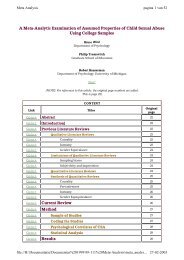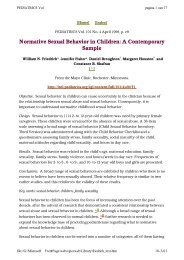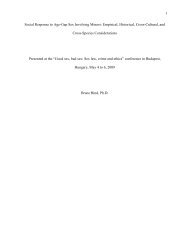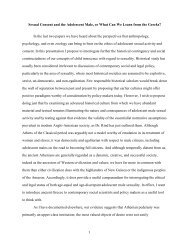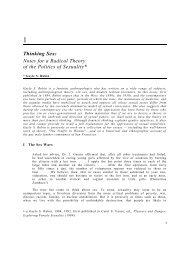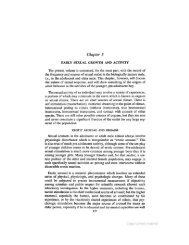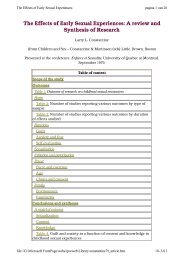PDF file - Ipce
PDF file - Ipce
PDF file - Ipce
Create successful ePaper yourself
Turn your PDF publications into a flip-book with our unique Google optimized e-Paper software.
Part_5_2<br />
greatest happiness for the greatest number. Only the very broadest of all principles, such as the<br />
so-called Golden Rule - "Do to others as you would want them to do to you" - or the Wiccan<br />
principle, "Do what you like as you like as long as it is harmless", may be said to escape this<br />
weakness.<br />
Is this weakness a serious one in the case of <strong>Ipce</strong>'s Four Principles? Yes it is, I believe, and I'll say<br />
why. First, though, it is necessary to draw attention to an absolutely fundamental question the<br />
Four Principles do not address. Going back to my first concept, what is it that the Four Principles<br />
do not explicitly tackle at all? There is no explicit statement of what social good, what desirable<br />
end, the principles are designed to promote. There is no stated goal that the principles are<br />
designed to bring about a generally happier state of affairs. No concern is expressed for the<br />
state of society nor is there any acknowledgement that anything is of any importance other<br />
than the possibility (admittedly an important possibility, but not the only one) of negative<br />
consequences of an adult-child relationship. The principles are all about bad things to avoid rather<br />
than good things to achieve.<br />
It may be felt there is no need to be explicit in this context about what we want to achieve. We<br />
can do that in conference papers and website position statements. Why go into all that in a set<br />
of ethical principles wisely designed simply to avoid relationships that end in tears?<br />
Well, let's look in detail at the principles, where I think we will find that<br />
(a) the lack of a positive goal-statement and<br />
(b) the weakness of rule-based ethics together give considerable problems.<br />
Paul M's argument freedom<br />
Actually these problems have already been exposed to a considerable extent in two excellent<br />
IMO postings. Part of Principle 3 states "Love and dedication must be unconditional. Sex is<br />
never allowed to be a bargaining tool." About this Paul M said: "What is this to do with<br />
'freedom'? And what is wrong with bargaining anyway? And doesn't all this then conflict with<br />
#1 and #2? I.e. if the younger partner has the self-determination and initiative then that person<br />
is also who decides whether conditions and bargaining are allowed or not. (I have known<br />
young hustlers who did very well out of me, God bless them.)<br />
What Paul has exposed here is<br />
(a) an inconsistency arising from failure to make the desired goals of the ethical system<br />
explicit and<br />
(b) the fact that the rules (in common with all rules) fail to allow for the richness of<br />
particular circumstances.<br />
http://home.wanadoo.nl/ipce/newsletters/nl_e_12/part_5_2.htm (5 of 13) [10/16/2002 5:35:14 PM]









